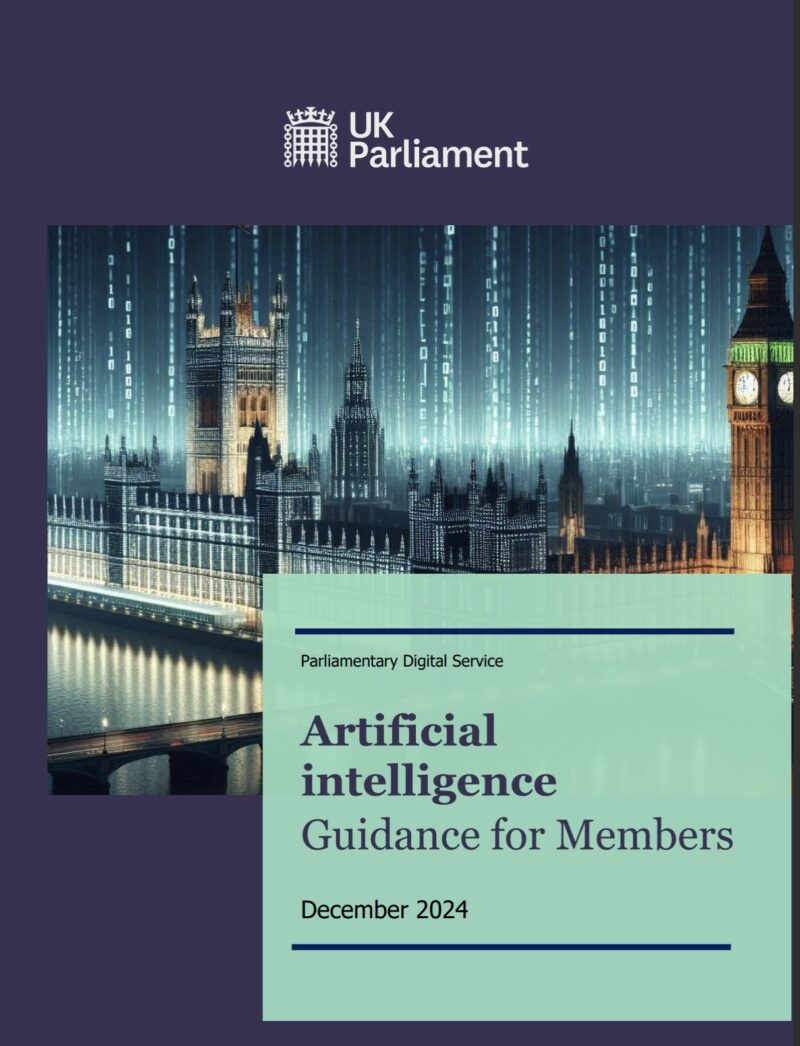Interest in and use of AI tools like Microsoft Copilot, Gemini, ChatGPT and Policy Mogul‘s AI Assistant continues to grow, and more and more staff members will have access to these services on their computers, tablets and phones. So far everything you read on w4mp is ‘generated by real people’ but who knows what’s coming next…
The Parliamentary Digital Service now offers a range of resources about for Members of both Houses and their staff. This includes newly created guidance on the use of AI, opportunities to learn more about AI, and information about Microsoft’s AI tool, Copilot.
The guidance, which has been considered by the House of Commons Administration Committee and House of Lords Services Committee, is intended to be a source of advice for those who wish to use AI to do so safely. It will be regularly reviewed and updated as required, so please keep an eye out for updates on ParliNet.
A version of Microsoft’s Copilot is available to all Parliamentary account holders. When you are logged into Copilot (https://m365.cloud.microsoft/chat/) with your Parliamentary account, this version applies the same data security as other tools provided for you through Microsoft 365. Please see page 10-11 in the AI Guidance for Members regarding the use of generative AI tools.
Resources and opportunities to learn more about AI are available on the AI resources for Members ParliNet page. PDS is also organising a number of seminars in conjunction with the Libraries of both Houses and you can register your interest by clicking the link within this page.
Read the report (on ParliNet) or pick up a printed copy from the Hub.


